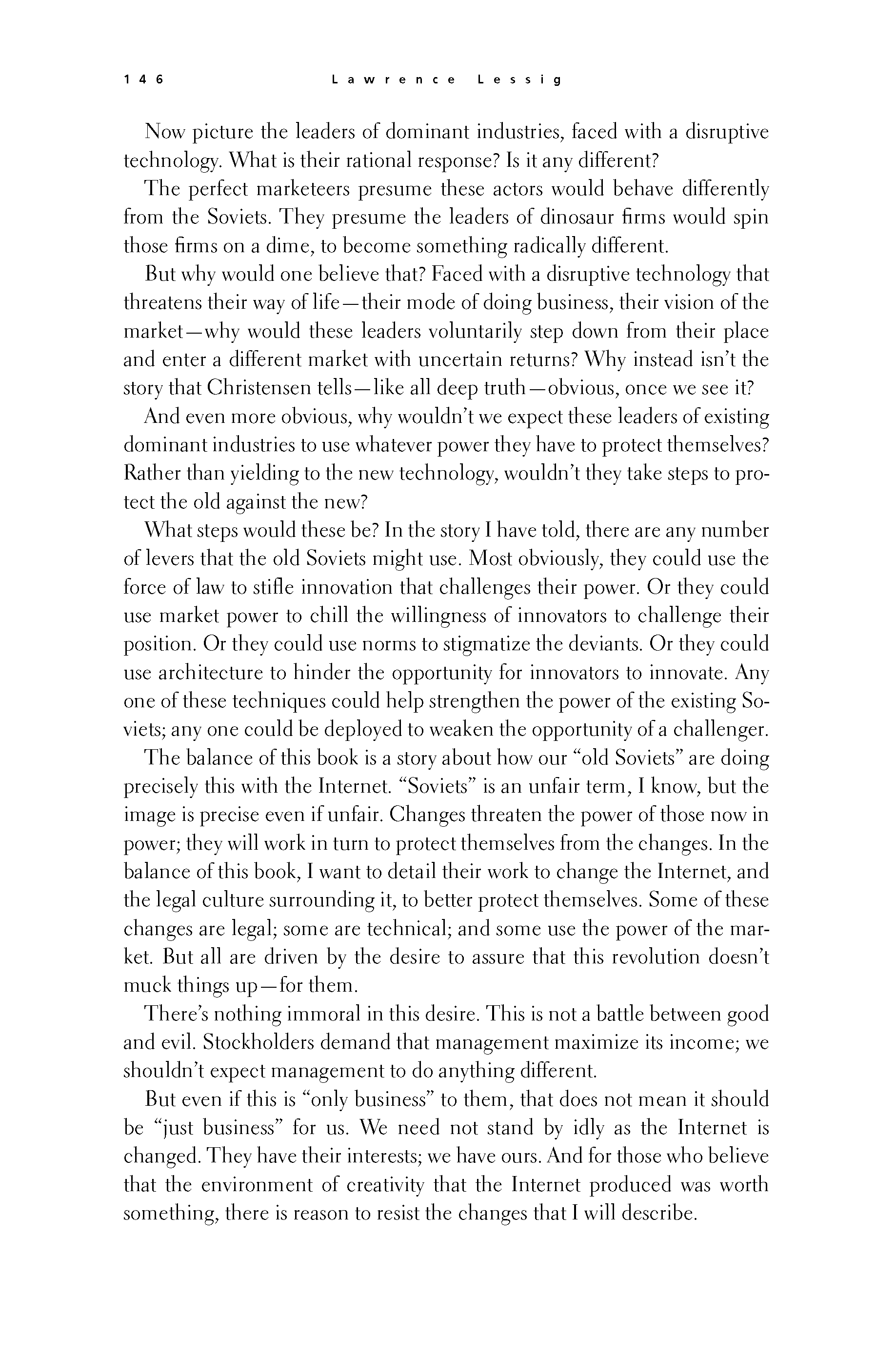 p145 _
-chap- _
toc-1 _
p146w _
toc-2 _
+chap+ _
p147
p145 _
-chap- _
toc-1 _
p146w _
toc-2 _
+chap+ _
p147
Now picture the leaders of dominant industries, faced with a disruptive
technology. What is their rational response? Is it any different?
The perfect marketeers presume these actors would behave differently
from the Soviets. They presume the leaders of dinosaur firms would spin
those firms on a dime, to become something radically different.
But why would one believe that? Faced with a disruptive technology that
threatens their way of life -- their mode of doing business, their vision of the
market -- why would these leaders voluntarily step down from their place
and enter a different market with uncertain returns? Why instead isn't the
story that Christensen tells -- like all deep truth -- obvious, once we see it?
And even more obvious, why wouldn't we expect these leaders of existing
dominant industries to use whatever power they have to protect themselves?
Rather than yielding to the new technology, wouldn't they take steps to pro-
tect the old against the new?
What steps would these be? In the story I have told, there are any number
of levers that the old Soviets might use. Most obviously, they could use the
force of law to stifle innovation that challenges their power. Or they could
use market power to chill the willingness of innovators to challenge their
position. Or they could use norms to stigmatize the deviants. Or they could
use architecture to hinder the opportunity for innovators to innovate. Any
one of these techniques could help strengthen the power of the existing So-
viets; any one could be deployed to weaken the opportunity of a challenger.
The balance of this book is a story about how our "old Soviets" are doing
precisely this with the Internet. "Soviets" is an unfair term, I know, but the
image is precise even if unfair. Changes threaten the power of those now in
power; they will work in turn to protect themselves from the changes. In the
balance of this book, I want to detail their work to change the Internet, and
the legal culture surrounding it, to better protect themselves. Some of these
changes are legal; some are technical; and some use the power of the mar-
ket. But all are driven by the desire to assure that this revolution doesn't
muck things up -- for them.
There's nothing immoral in this desire. This is not a battle between good
and evil. Stockholders demand that management maximize its income; we
shouldn't expect management to do anything different.
But even if this is "only business" to them, that does not mean it should
be "just business" for us. We need not stand by idly as the Internet is
changed. They have their interests; we have ours. And for those who believe
that the environment of creativity that the Internet produced was worth
something, there is reason to resist the changes that I will describe.
[[146]]
p145 _
-chap- _
toc-1 _
p146w _
toc-2 _
+chap+ _
p147